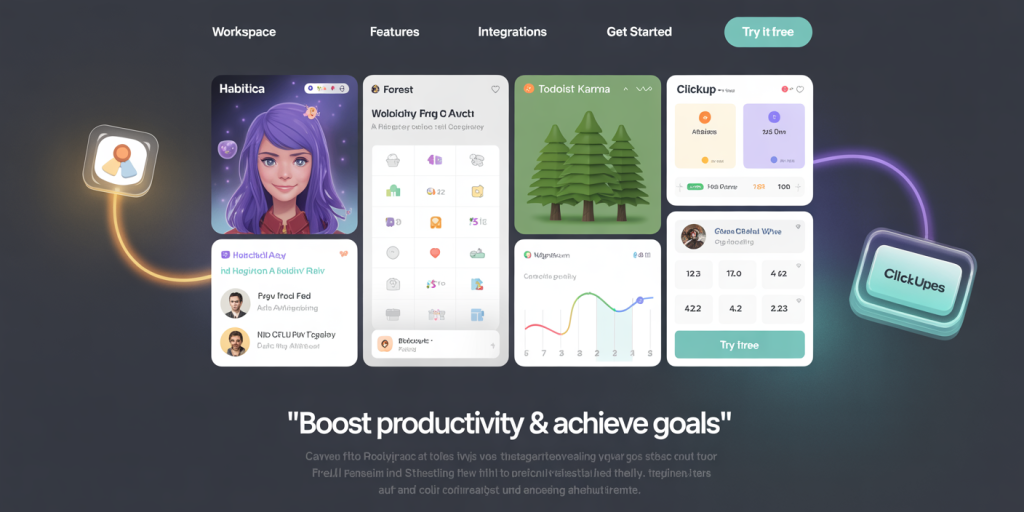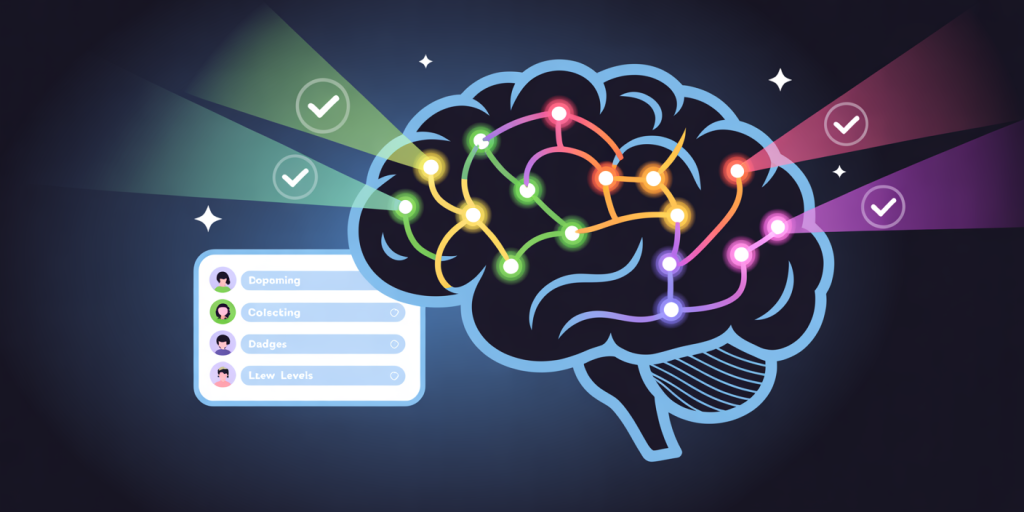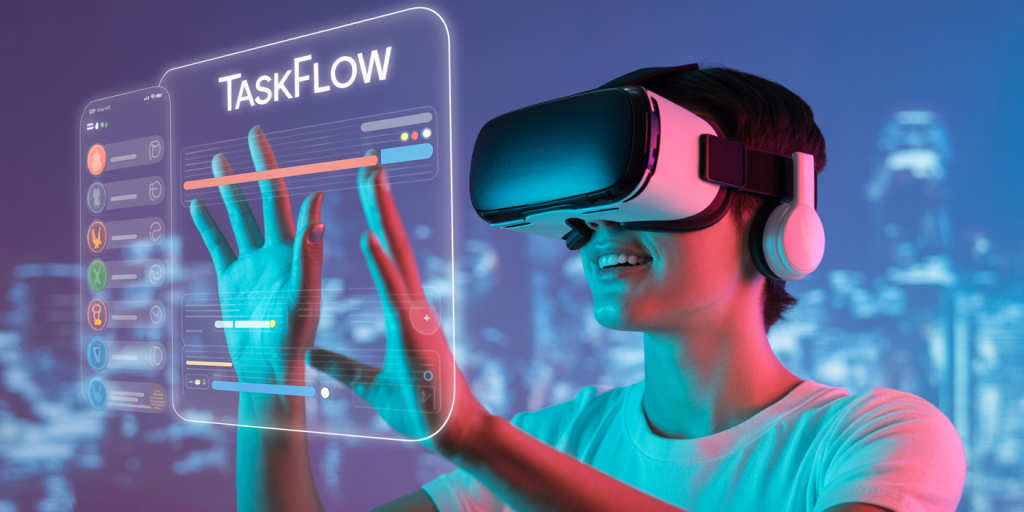In today’s fast-paced world, the challenge of remaining productive while maintaining motivation is a common struggle faced by many. Productivity apps have evolved significantly over the past decade, blending technology with behavioral psychology to create tools that help users stay focused and accountable. Among these advancements, gamification has emerged as a powerful strategy to enhance user engagement. Gamification incorporates game-design elements such as rewards, challenges, and competitive components into non-game contexts to stimulate motivation and improve task management.

Recent studies show that 70% of employees who use gamified productivity tools report a boost in motivation, while 80% say these tools help improve focus (source: TalentLMS, 2023). By turning mundane or complex tasks into interactive experiences, productivity apps leveraging gamification foster a sense of achievement and fun, driving sustained user participation. This article explores the top productivity apps employing gamification effectively, examining their features, impact, and how they compare in functionality and user engagement.
How Gamification Boosts Productivity: Psychological Foundations
Gamification works by tapping into intrinsic and extrinsic motivators that compel people to take action. Fundamentally, it engages the brain’s reward system through immediate feedback mechanisms like points, badges, and leaderboards, which provide a sense of accomplishment and progress. This concept is rooted in the psychological principle of operant conditioning, where positive reinforcement encourages repeated behaviors.

For example, when a user completes a task and earns XP (experience points) or levels up, it triggers a dopamine release, reinforcing the behavior to continue working towards goals. Moreover, social comparison mechanics, such as leaderboards or team challenges, leverage competitive instincts, prompting users to outperform peers while also collaborating in some cases. The result is heightened engagement and improved task completion rates. Real-world applications of these principles reveal significant productivity improvements. A study by the University of Colorado found that gamified apps increased user task completion rates by up to 40% compared to traditional to-do lists (Journal of Applied Psychology, 2022).
Habitica: RPG Role-Playing to Build Daily Habits
One of the pioneers in gamified productivity, Habitica transforms everyday tasks into a role-playing game (RPG). Users create customizable avatars and manage their daily habits, to-dos, and goals through a game interface that rewards consistency and effort with experience points, virtual gold, and party quests. This app is especially beloved by users who enjoy immersive storytelling and game dynamics blended into their productivity routine.
For example, a user aiming to develop a morning routine might group habits like “drink water,” “meditate,” and “read” under daily tasks. Habitica sets penalties for missed tasks, pushing users to maintain streaks much like in real games. Social features include joining guilds and participating in challenges, creating peer accountability. Practical outcomes are visible: many users report increased habit adherence rates due to Habitica’s engaging visuals and community support. Case in point, a user on Reddit noted that after six months on Habitica, they improved their study habits by 75% due to gamified task completion.
| Feature | Habitica | Forest | Todoist Karma |
|---|---|---|---|
| Core Gamification | RPG Elements, XP, Party Quests | Visual Growth, Timers | Karma Points, Leveling |
| Social Interaction | Guilds, Challenges | Limited (Focus Sharing) | Leaderboards, Teams |
| Task Types | Habits, To-do, Dailies | Single Task Focus | Simple & Complex Task Lists |
| Mobile/Desktop | Both | Both | Both |
Forest: Growing Focus Through Visual Gamification
Forest offers a unique approach by gamifying the act of focusing over time rather than task lists directly. Users plant a virtual tree and as they stay off their phones, the tree grows. Interrupting focus kills the tree, adding a consequence for distraction. Over time, users develop a forest as a representation of accumulated focused sessions, making productivity visually rewarding and tangible.
This app taps into the Pomodoro Technique—a widely recognized productivity method involving periods of focused work followed by breaks. However, Forest adds a gamified layer, which encourages users not only to time themselves but also to persist by linking concentration to a growing digital ecosystem. Ecologically conscious users appreciate that virtual coins earned through the game can be used to plant real trees through nonprofit partnerships, adding an altruistic incentive.
Statistically, Forest’s average session length is 25 minutes, aligning with optimum focus duration identified by cognitive research (source: The American Psychological Association, 2021). Many users employ Forest to curb smartphone addiction while boosting productivity—one example is a university student who reported increasing her monthly study hours by 30% after adopting Forest consistently during exam periods.
Todoist Karma: Tracking Productivity with Data-Driven Gamification
Todoist Karma complements a traditional task management system with a data-driven gamification model. Karma tracks users’ productivity patterns, awarding points for task completion, streaks, and consistency. Visual charts and progress bars provide comprehensive insights that motivate continual improvement.
Unlike Habitica or Forest, Todoist focuses more on quantified self methodology rather than game-like avatars or forests. Users can set daily and weekly goals, receive reminders, and analyze performance trends. The Karma system introduces rivalry through customizable goals, where users can compete against past performance or friends’ scores.
For professionals managing diverse projects, Todoist’s integration with email, calendars, and other productivity suites offers a seamless workflow enhanced by gamification without losing functional depth. Based on a 2023 survey by GetApp, 85% of Todoist users found Karma motivating, and 60% attributed increased task completion to the feature within three months of consistent use.
| Criteria | Habitica | Forest | Todoist Karma |
|---|---|---|---|
| Best For | Habit-building and RPG enthusiasts | Reducing distractions & focus | Task management with analytics |
| Social Features | Strong (Guilds & Challenges) | Moderate (Sharing Focus) | Moderate (Friend Lists & Teams) |
| Customizability | High | Low | High |
| Learning Curve | Medium | Low | Low |
| Popularity (App Store) | 4.5/5 | 4.8/5 | 4.7/5 |
ClickUp: Comprehensive Gamified Productivity for Teams
ClickUp is a productivity platform geared toward team collaboration but also integrates gamification features to enhance individual and group motivation. It uses a points and badges system that rewards task completion, sprint achievements, and even milestone projects. What sets ClickUp apart is its versatility—it combines task management, document sharing, goal tracking, and automation with a gamification layer.
Teams using ClickUp benefit from transparent progress tracking visible to all members, fostering healthy competition and accountability. For instance, a software development team might use ClickUp’s gamified sprints to track story completions, rewarding top performers with badges and recognition during company meetings. This not only boosts morale but promotes a results-driven culture.
Real-world case studies support ClickUp’s impact: a marketing agency reported a 35% increase in project completion speed and a 50% boost in employee participation after implementing ClickUp’s gamification features (Case Study: ClickUp, 2023). The app also integrates with platforms like Slack and Google Workspace, ensuring a productive ecosystem reinforced by motivation-enhancing elements.
The Future of Gamified Productivity Apps: Trends and Innovations
As technology evolves, gamification in productivity apps is poised to become even more sophisticated. The next wave of innovation is likely to blend artificial intelligence (AI) and machine learning to provide hyper-personalized motivation systems. For example, AI could analyze user behavior to dynamically adjust rewards or challenges, optimizing engagement in ways that mirror individual preferences and productivity cycles.
Virtual Reality (VR) and Augmented Reality (AR) also represent exciting frontiers. Imagine a VR workspace where gamified tasks unfold as immersive quests or an AR overlay providing real-time fun challenges and progress updates during work hours. Early experimental apps already incorporate some of these elements, suggesting a robust future for gamified productivity.
Additionally, data privacy and ethical gamification will remain crucial. As apps gather user behavior data for gamification, maintaining transparency and safeguarding information will be mandatory to retain user trust and meet regulatory standards. Overall, AI-driven personalization, immersive interfaces, and responsible data practices will define the next generation of productivity apps aiming to transform motivation and productivity on a global scale.

—
The integration of gamification in productivity apps has revolutionized how individuals and teams approach work and habit-building. By fostering engagement through game mechanics, apps such as Habitica, Forest, Todoist Karma, and ClickUp offer diverse functionalities suited for different user needs. Supported by psychological insights and real-world success stories, these apps exemplify how gamification can transform daily productivity from a daunting chore to an enjoyable, motivating experience. As innovations continue to emerge, the future promises even more dynamic and personalized tools that will empower users to stay productive and motivated like never before.

Deixe um comentário